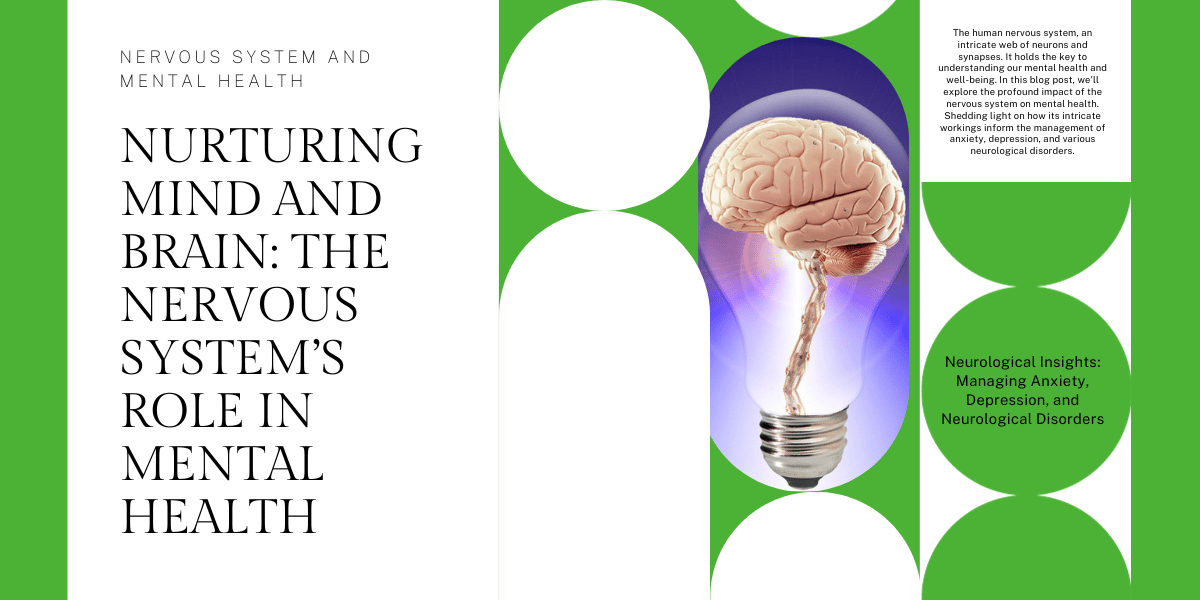Nurturing Mind and Brain: the Nervous System’s Role in Mental Health
Neurological Insights: Managing Anxiety, Depression, and Neurological Disorders
Mind Matters: Navigating Mental Health Through Nervous System Understanding”
The human nervous system, an intricate web of neurons and synapses. It holds the key to understanding our mental health and well-being. In this blog post, we’ll explore the profound impact of the nervous system on mental health. Shedding light on how its intricate workings inform the management of anxiety, depression, and various neurological disorders. By unraveling the mysteries of our neural pathways, we can pave the way for enhanced mental well-being and a deeper understanding of the human mind.
Understanding the Nervous System:
Neurotransmitters and Mood Regulation:
Delve into the role of neurotransmitters like serotonin and dopamine in regulating mood and emotional states, essential in managing conditions like depression and anxiety.
Brain Plasticity and Healing:
Explore the concept of neuroplasticity, understanding how the brain can rewire itself. Offering hope for recovery and improved mental health in neurological disorders.
The Gut-Brain Connection:
Uncover the fascinating link between the gut microbiota and the brain. Exploring how a balanced gut can influence mental health and alleviate symptoms of anxiety and depression.
Managing Anxiety and Depression:
Cognitive Behavioral Therapy (CBT):
Understand how CBT, rooted in understanding neural patterns, can reshape negative thought patterns, offering effective tools for managing anxiety and depression.
Mindfulness and Neurology:
Explore the neurological changes that occur during mindfulness practices, elucidating how mindfulness can alleviate symptoms of anxiety and enhance overall mental well-being.
Neurological Interventions:
Discover emerging neurological interventions, such as neurofeedback and transcranial magnetic stimulation, offering promising avenues for managing mental health conditions.
Nervous System and Neurological Disorders:
Epilepsy and Seizure Control:
Unravel the neurological basis of epilepsy and explore advancements in seizure management, offering patients a better quality of life.
Parkinson’s Disease and Movement Disorders:
Understand the impact of dopamine deficiency in Parkinson’s disease, shedding light on treatments aiming to restore neurological balance and movement control.
Conclusion: By deepening our understanding of the nervous system, we embark on a transformative journey toward mental well-being. Armed with knowledge, we can navigate the complexities of anxiety, depression, and neurological disorders. Fostering a compassionate approach to mental health and offering hope to those in need. Together, let’s embrace the power of neurology in shaping a healthier, happier mind.
Note: This blog post is intended for informational purposes only and should not be considered a substitute for professional medical advice or treatment.





